Gallipoli centenary: At dawn, the young remember the young who perished in one of the First World War's bloodiest battles
A century ago, soldiers of the Empire – many no more than boys – spilt on to Gallipoli's beaches. On this 100th Anzac Day, there are personal, poetic tributes to their sacrifice
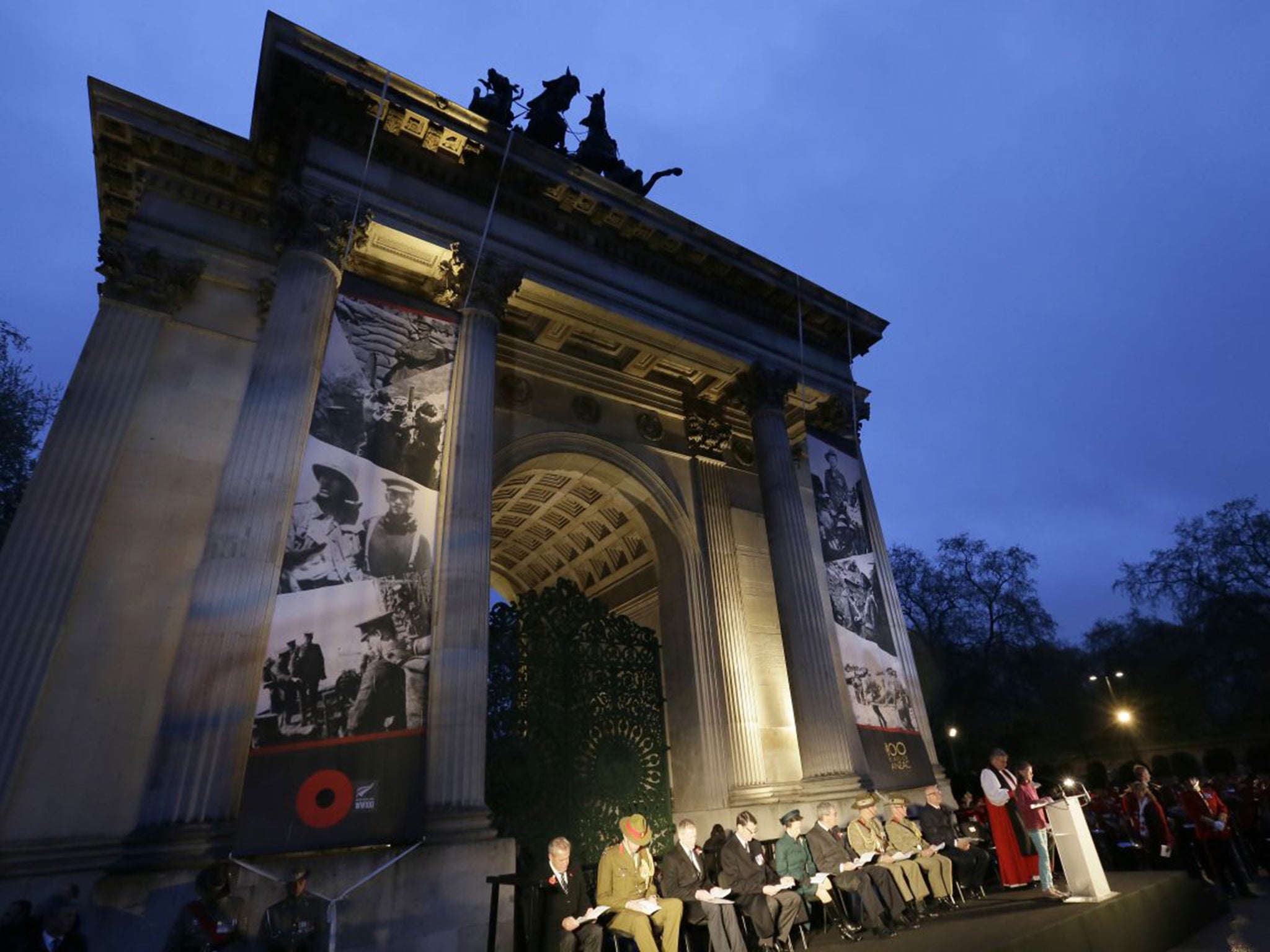
Your support helps us to tell the story
From reproductive rights to climate change to Big Tech, The Independent is on the ground when the story is developing. Whether it's investigating the financials of Elon Musk's pro-Trump PAC or producing our latest documentary, 'The A Word', which shines a light on the American women fighting for reproductive rights, we know how important it is to parse out the facts from the messaging.
At such a critical moment in US history, we need reporters on the ground. Your donation allows us to keep sending journalists to speak to both sides of the story.
The Independent is trusted by Americans across the entire political spectrum. And unlike many other quality news outlets, we choose not to lock Americans out of our reporting and analysis with paywalls. We believe quality journalism should be available to everyone, paid for by those who can afford it.
Your support makes all the difference.They died in the dark, some of them. Young men, volunteers mostly, cut down by bullets and bombs, fire and fever. Australians, New Zealanders, Brits and Irishmen, Africans and Indians and many, many Turks were among those killed in the fighting at Gallipoli a century ago.
On Saturday, they were remembered in the dark. The other-worldly growl of a didgeridoo sounded out across Hyde Park Corner, calling people to assemble in their name.
The long, pure, mournful sound of a Maori conch shell followed on at the start of the Anzac Day service, falling among the bright notes of the dawn chorus. The traffic had been stopped. Five thousand people stood, still and quiet, in the early morning rain. There may have been more.
“Why are we here? Because they were just like us,” said Craig, a Kiwi fitness coach in his early twenties. Many of those who died a century ago were young, strong and full of spark like his group of half a dozen who had come on from the pub to honour them. They were up all night but laughed it off, long since sober, as they waited for the ceremony to begin.
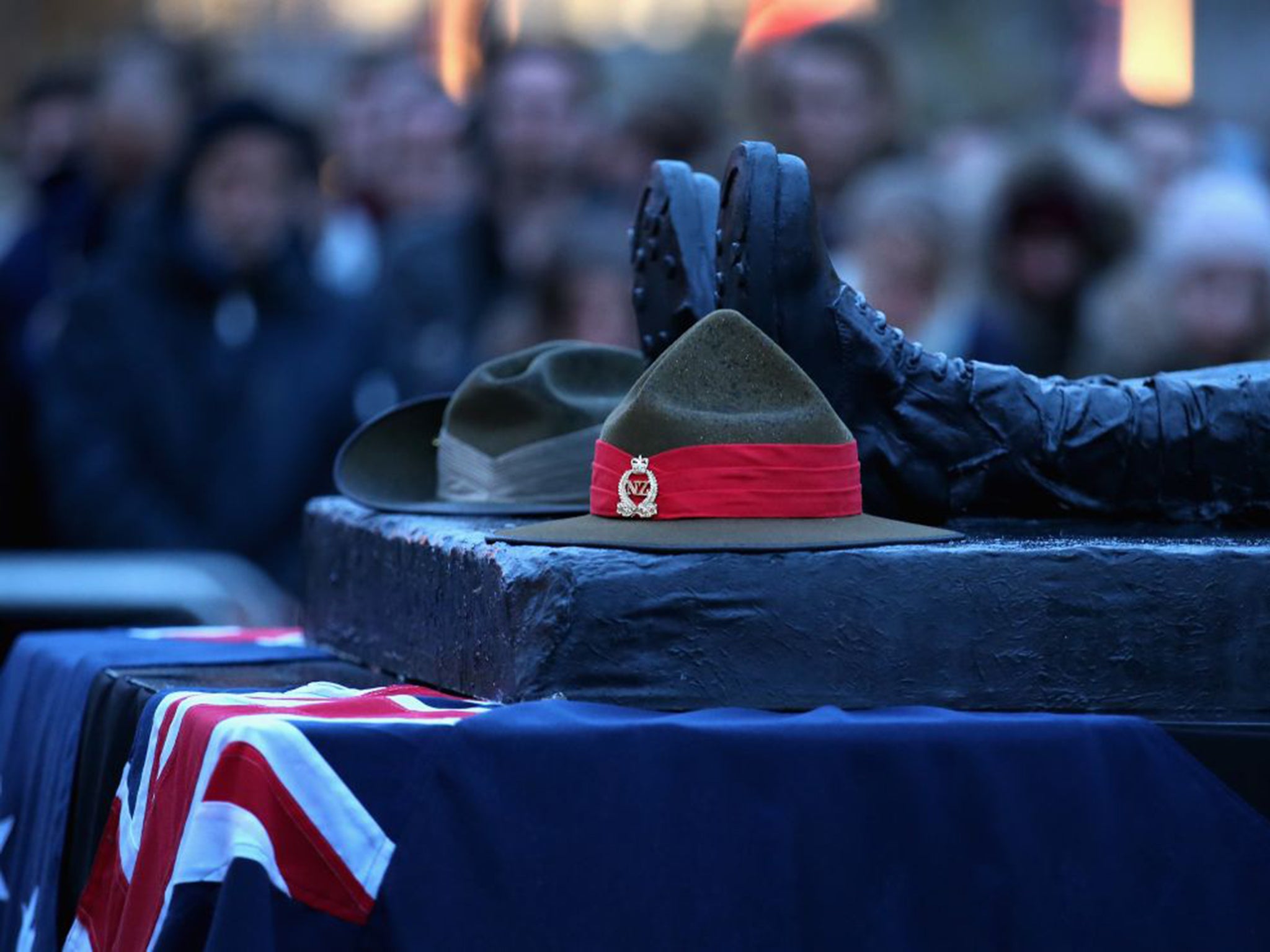
This was the time of day, in the murderous half-light, when the first of the boats began to land on the Gallipoli Peninsula on 25 April 1915. The Allies were trying to win their way through to Constantinople and knock Ottoman Turkey out of the war. They did not get far inland, and when they withdrew eight months later there had been nearly 400,000 casualties on all sides, including an estimated 131,000 deaths.
The fallen were remembered at events around the world, including Turkey. In London, the Queen and the Prime Minister laid wreaths at the Cenotaph and there was a ceremony at St Paul’s. Prince Charles and Prince Harry were in Gallipoli.
We may feel sated by the many First World War commemorations this year, but this dawn service was something different – partly because it was a gathering of the Anzac clans and also because it was as much about life now as then. The crowd was much younger than you might see at a purely British event; much closer to the ages of those who fell. As Maori men danced a haka with faces fierce, it was all too easy to imagine them falling in the dark too.
“This is the biggest event we have ever had here on Anzac Day, by far,” said a spokeswoman from the Australian High Commission. She said Anzac Day all began in London in 1916, when men of the Australian and New Zealand Army Corps marched through the city to remember their mates. Not names on a list, or symbolic heroes yet, but pals, blokes with wives and children, or just teenage boys. Australia had lost 8,700 men and New Zealand 2,800.
Over time, Gallipoli became one of the foundation stories for both those nations. Interest waned as veterans died but there has been a remarkable resurgence in recent years, and Anzac Day is now embraced by the young in a remarkable and touching way.
“This is bigger than Christmas, bigger than New Year,” said Marnie Northrop, a 29-year-old Aussie travel agent who had come with her friends at three in the morning to be near the front. They had slept a little. “I’m not sure it was worth it, probably feels worse.” They had all seen the heartbreaking 1981 film Gallipoli, starring a young Mel Gibson, which is shown in schools, but Marnie said there was more to Anzac Day than sentiment or even honouring the dead. “This is ours. We don’t have another moment like it when we can show patriotism, unless it’s a big sporting event.”
She went on to say something about the Ashes that it seemed best for Englishman to ignore, before adding: “We are still a young nation, this is something tangible for us.”
The service’s master of ceremonies, comedian Adam Hills, stood sombre in a grey suit darkened by rain as the voice of the New Zealand High Commissioner, Sir Lockwood Smith, cracked with emotion as he told of one man who died, his grandmother’s first fiancé, “the first love of her life”.
That was a reminder that the names on the list of fallen were real people who lived and loved and are alive in the memory still. “Their stories have become our stories,” said the Australian Prime Minister, Tony Abbott, at Lone Pine, the site of a battle during Gallipoli. He thanked Turkey for treating the Anzac dead with care and respect and said an adversary had become a great friend. Gallipoli was a key moment in the life of Turkey too. Mustafa Kemal, an officer in the campaign, became the first president of the new republic. He said those who died in his country should be treated as its own: “There is no difference between the Johnnies and Mehmets to us where they lie side by side here in this country of ours.”
This is the other side of Gallipoli, the untold story. It has become an Anzac legend, but Gallipoli shows what a truly global tragedy the First World War was.
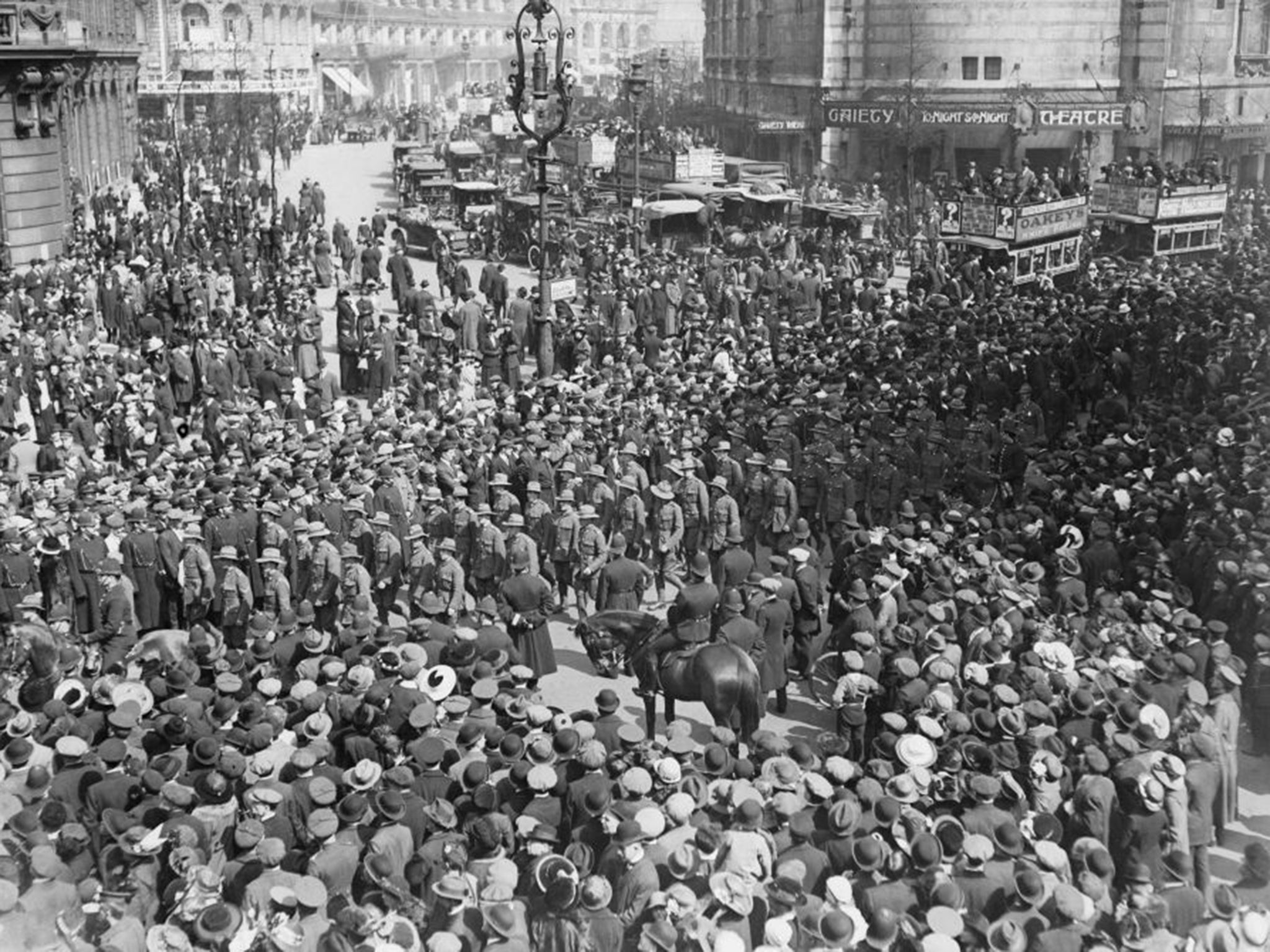
Soldiers from Iraq and Syria were among the 86,000 men who died on the Ottoman side, as well as German officers. Few people realise that there were around 1,500 Indians among the Allied casualties. The estimated 10,000 Frenchmen killed included some from North African colonies.
English officers take the blame for the disaster in Aussie mythology, drinking tea on the beach, it was said, while young men died. And it was Winston Churchill, First Lord of the Admiralty, who called for the ill-fated land assault after a naval attempt to seize the Dardanelles Straights failed.
But the British and Irish regiments lost at least twice as many men as the Anzacs, 26,000 in all.
“Much as we admire the Anzacs – they are wonderful people – this was a British operation,” said Captain Christopher Fagan of the Gallipoli Association. “They have won the publicity over the years, which has meant the sacrifices of the British and the French have not been commemorated properly. We are putting that right.”
His father fought at Gallipoli. There are many others in this country with close ties to the battle, including James Hanning, the deputy editor of this newspaper. His family has handed down a diary written from the front by Bartle Bradshaw, a lawyer from Barrow-in-Furness in Cumbria, who was 33 years old when he sailed to Gallipoli with the 1st Border Regiment.
It is heartbreaking. The diary, written as letters home, begins full of enthusiasm for the history, mythology and beauty of the landscape that Bradshaw is approaching by ship, watching from the deck “with New Testament in one hand and small Greek history in other”. He is mesmerised by abundant nature. “No birds, sea very blatantly blue, porpoises porpoising all the way.”
The hills and headlands remind him of family holidays. “The gentle breeze from the sea through Vines and Myrtle Groves and Wild Thyme and Lavender is beautiful. Red poppies everywhere, redder than blood.” Even as they near the battle, he is captivated by the land. “How anyone can fight in a Garden of Eden like this beats me.” But the horrors are not far away. “While digging in a small channel or stream yesterday I stuck my spade into a face under water, horrible!”
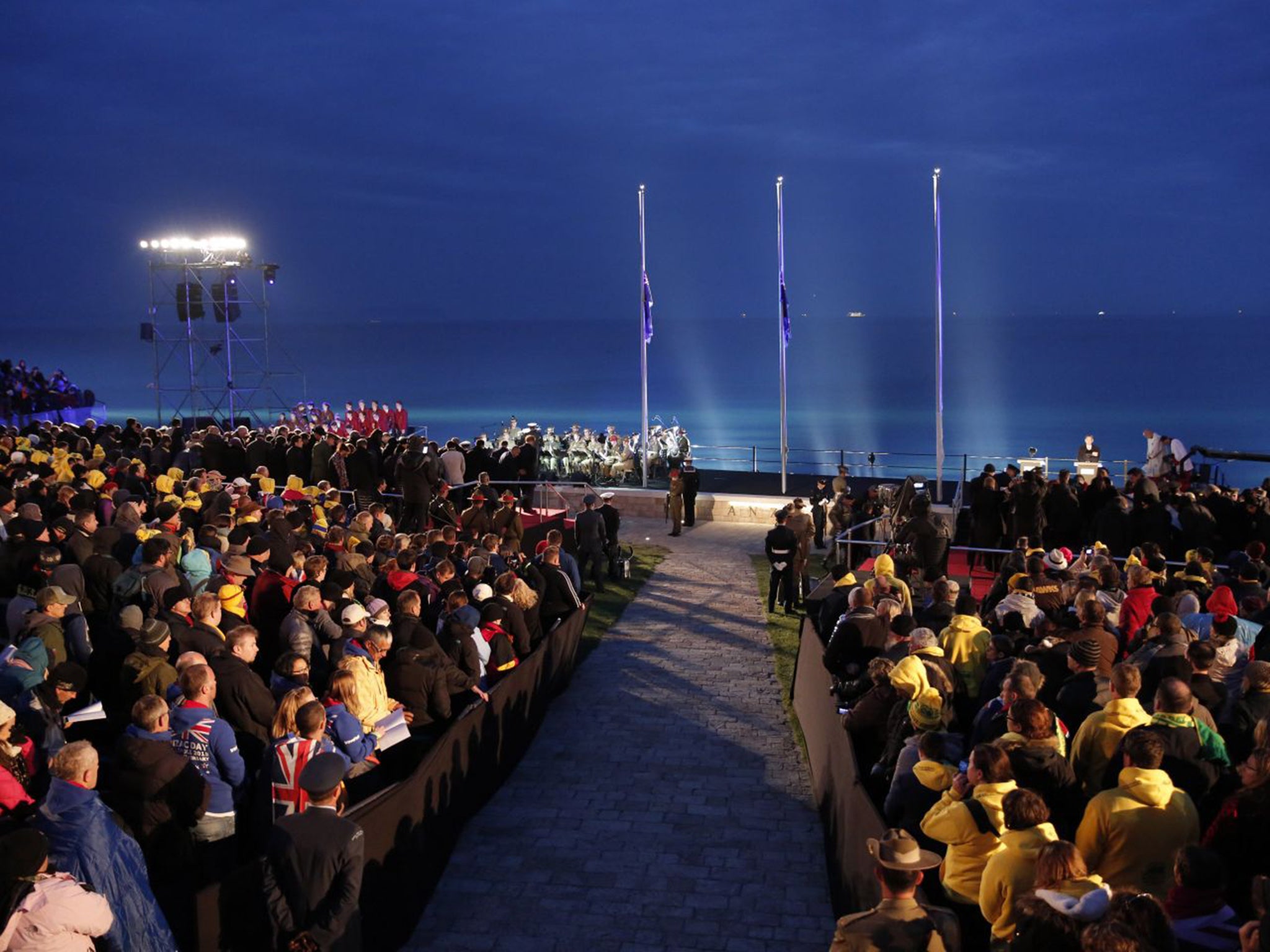
Censoring the platoon’s letters home brings a lump to his throat. “Some of them are very beautiful, all are honest. Four of them asked their people to pray for them, so do I.”
He seeks to reassure those at home. “I am enjoying it very much so far thank you. I am fat and well and happy.” Bradshaw says he nips into his dugout like a rabbit when the shells fly. “You don’t catch me running any unnecessary risks.”
The battles start in earnest for him on 3 June. Artillery fire becomes “this continual roar, a noise beyond all conception … the whole Turkish lines seemed to heave up as if rent by earthquakes”. Going through narrow trenches to the makeshift mess to eat is risky, men get shot down as they try. “Breakfast consists of sand, sand everywhere, and flies.”
The body count grows fast. “Saw the poor wounded on way back lying out in baking sun, all mutilated and unrecognisable with those millions of awful flies buzzing around and they unable to drive them away.”
They are forced to sleep and eat among the bodies. He loses a man a day to the shells or the snipers. “The most fortunate are those who are wounded,” writes Bradshaw, but he adds: “It is only the coward who longs for a piece of shrapnel in his arm or leg.”
Then, on Thursday 10 June, the company commander asks for volunteers to take part in an attack. “It is hardly fair to ask for volunteers, work of this [kind] should be done by rota. I have volunteered of course, and I expect the rest of the Subalterns will do also. Out here one does everything that comes one’s way. Trusting in God….”
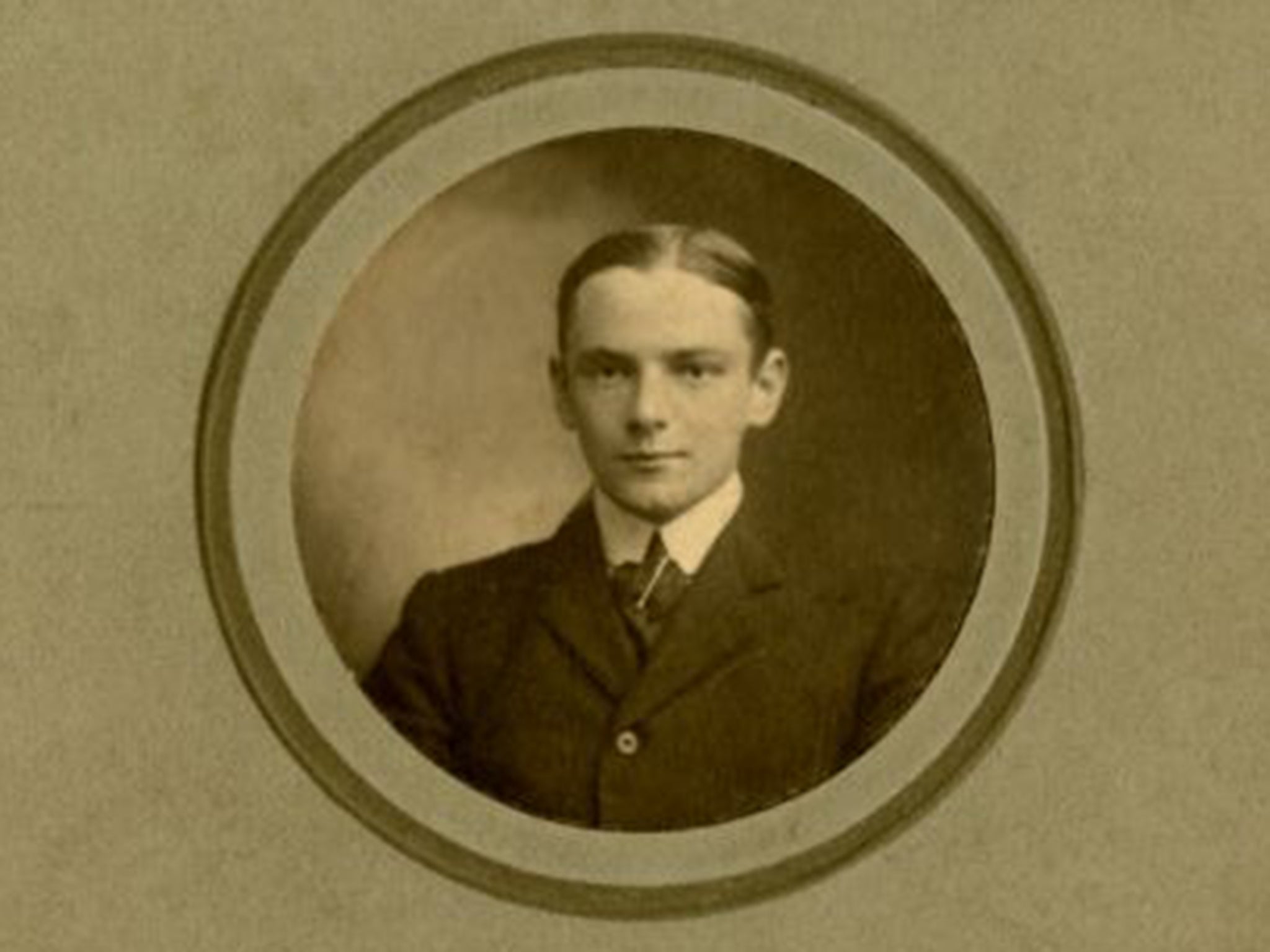
And there the diary ends suddenly. There are no more letters home. The records show that a storming party of 30 men was assembled that night to attack a position from which Turkish soldiers had been throwing over bombs.
Second Lieutenant Bartle Bradshaw was shot in the early hours of the morning.
On Saturday, at around the same time, the Last Post sounded over Hyde Park Corner and silence fell. But a pair of seagulls wheeling overhead called out, because life will not be silenced.
A young girl had read a prayer urging all to remember, because “in forgetting our history, we become doomed to repeat it”. But we are in danger of repeating the mistakes of history, for all our ceremonies.
The stories of a century ago seem terribly familiar: diplomacy that fails, acts of terror that make the nations line up against each other; the young and the lively cut down in the name of orders they don’t really understand. They died in the dark, some of them. Their light shines, but the darkness has yet to be overcome.
Join our commenting forum
Join thought-provoking conversations, follow other Independent readers and see their replies
Comments